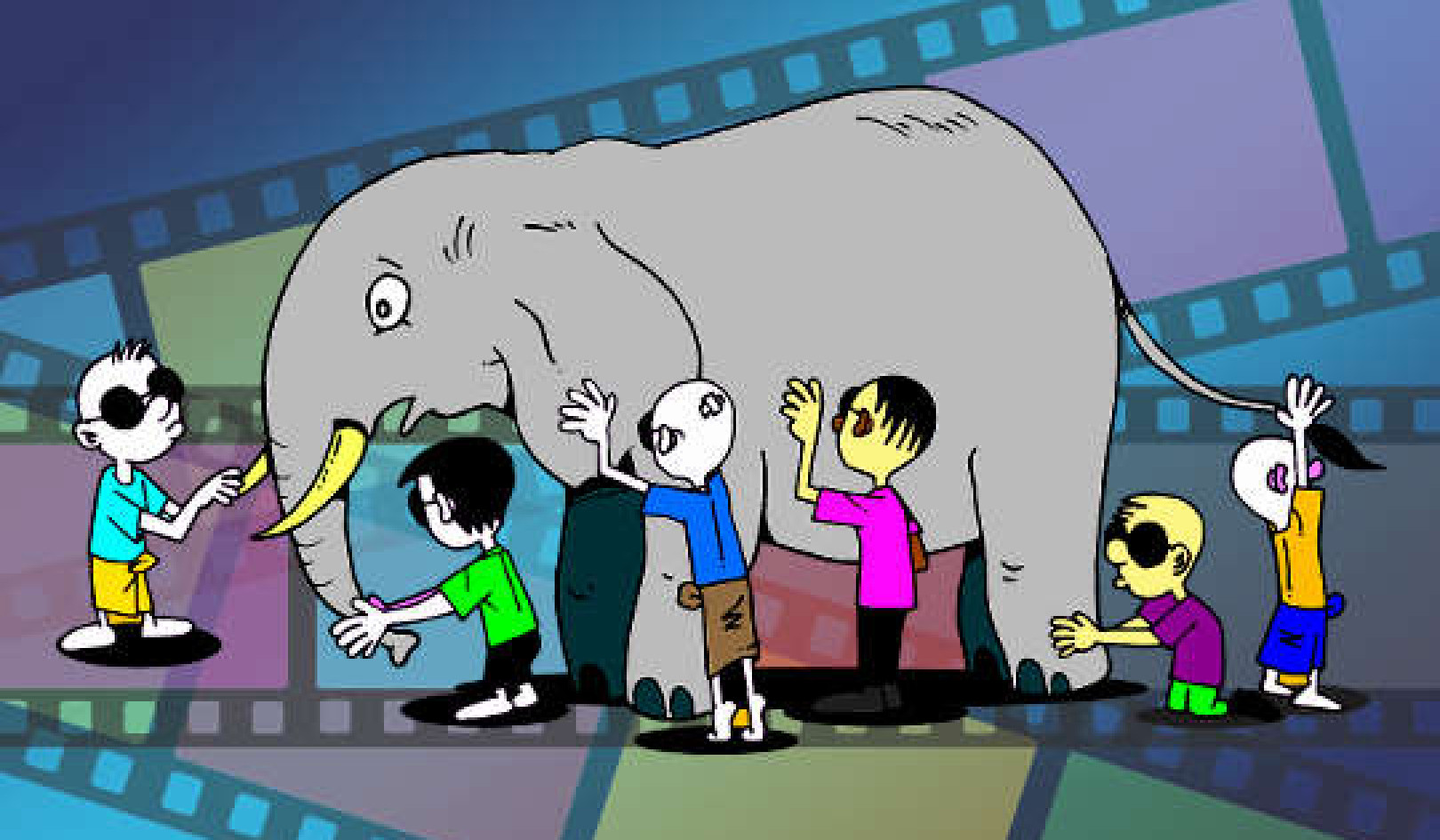
Image by pasja1000
Spending time with empathetic, optimistic, open-minded people and weeding out those who have the opposite qualities will boost your mood, elevate your motivation, and improve your health.
Human beings are social animals—we all need interaction with other humans for basic survival as well as psychological health. When we associate selectively, we surround ourselves with friends and family and communities who encourage us to reach our full potential. Find and hold on to people who affirm your values and support you in making sound (tough) decisions. Have them reality-check you when you may have behaved badly or when you get stuck in negative thinking. Trusted others can help you identify and nurture your talents. They can partner with you to solve complex problems. With others who genuinely have your back, you develop a broader confidence that extends to other parts of your life.
Associate Selectively is one of three Behavioral Principles presented in this book, along with Control Stimuli and Move. You’ll notice that what these principles have in common is that they involve engaging in conscious behavior to cope actively with the world as it comes at you, as opposed to passively taking what the world gives you. Together, these principles free you up to move through life with a greater sense of confidence and self-efficacy.
Associating Selectively Is Essential
Associate Selectively is essential. Think about how a weekend spent with old friends or a vacation with a loving partner and family can send you into the next week with a powerful confidence that you’ll be able to tackle whatever challenges it may bring. On the other hand, think of those moments when you feel withdrawn from friends and family or when they seem to be undermining you and how that can leave you feeling tired and sapped of energy.
The positive people in our lives can help get us past our worst versions of ourselves—and help move us to a more fully formed state. We cannot know or fully experience ourselves without real connection with others.
You want to associate with people who are the kind of person you’d like to be—people who inspire you to learn and do things you might not believe are possible. Being around such people will move you in this direction. And the most important people by far in terms of this are your closest friends, family members, or your life partner.
It can’t possibly be emphasized enough how important these people are. They represent your core inner circle.
Making Choices to Keep Your Closest Relationships Healthy
Most of us were encouraged by our parents to choose our friends carefully, but of course, associating selectively does not mean jettisoning important relationships as soon as they become challenging.
It does, however, require addressing negative, unhealthy patterns in relationships early. If a close relationship cannot be repaired or renegotiated to arrive at a healthier place, we sometimes have to make the hard decision to move on.
Be Aware of How You Feel and Act When With Others
To associate selectively, you need to be aware of your own feelings, stress level, and related behavior. The next time you find yourself suddenly ill at ease—which could mean you find yourself flustered, or feel your heart start to race, or you suddenly are heading out the door or to the kitchen to do some mindless comfort eating—reflect and ask yourself, Who is in the room, or who did I just talk with, or what did I just experience? What’s going on around me?
Fear, worry, and other negative emotions register quickly and often pass from one person to another with few or no words. This is how you can identify if you’ve “caught” someone else’s “emotional virus.”
If you spend an evening, for instance, with people who drink heavily, does that erode your ability to keep to your goals of limiting your own drinking? If you’re having a productive workday, how much do you get derailed by an interruption by a snarky colleague? If you’re volunteering for a committee at your community center or religious institution, do you think about staying home just to avoid another committee member who is a force field of complaints? An awareness of when your energy or mood or behavior is being affected by others, both positively and negatively, is the first step in getting better at associating selectively.
Even our physical health and our susceptibility to medical diseases are related to the company we keep. What we eat, how much we sleep, how sedentary we are, and how much exercise we get is strongly influenced by the people we choose to associate with. Always stay aware of yourself when you are around others, and if you are not comfortable, change locations or speak up!
Keep in mind that stress and anxiety is contagious. Pay attention to when your mood suddenly changes for the worse. Did you “catch” something from someone whom you might want to avoid in the future?
Tamara, an athletic woman in her late twenties, offered to drive her friends for a long weekend of skiing. She told us how odd it seemed, and how uncomfortable she felt, that as soon as they were on the road, her friends took out their phones and started texting. The car got completely silent. “It just felt so weird that they saw it as dead time,” she said. “I told them, ‘Hey, we should be catching up. We don’t get a lot of time together in one place anymore.’ ”
The good news is that, with practice, you will become better at detecting—and then avoiding or managing your reaction to—the people around you who are frequently swimming in their own private thoughts or negative states of mind. You can say something, as Tamara did, or navigate away from people so that their distress does not pull you in and trigger your own. Conversely, you will be able to better detect those people who lift your spirits and support your goals and move to secure closer relationships with them.
We were impressed that Tamara spoke up. Most of us might not say anything and just keep driving in silence, but that would likely lead to feeling resentful or alone. The moment Tamara describes was brief, maybe not highly significant, but it nicely illustrates how often these micro-moments of associating with people happen every day. Be aware and proactive to enhance your associations with the people around you.
Get Comfortable Saying No More Often
This is an especially important skill to practice around authority figures, family, and highly persuasive individuals. Like a muscle that you want to keep flexible and strong, saying no and setting limits about where and how you spend your time requires ongoing attention and practice.
Saying no can be as simple as saying, “I wish I could do that, but it’s not possible for me.” Create a simple phrase and rehearse it many times before you meet up with people who are highly demanding.
Don’t feel you must apologize. You don’t have to say you’re sorry if you don’t want to go out for drinks with colleagues, or if you don’t want to buy Girl Scout cookies from a colleague who is selling on behalf of his daughter, or if you don’t want to take on a volunteer proj ect. Just say, “No, thanks, but I hope you have a good time / I hope you sell a lot / I hope it goes well.” Saying sorry implies that you think you’ve made a mistake or that you are regretful.
We understand that this can be difficult. For many people, saying sorry has become an automatic phrase, but consider using that word sparingly. Don’t feel like you need to use it when saying no to requests for your time.
Mitigate Negative Interactions When It’s Impossible to Escape Them
It’s not always possible to walk away from difficult people. Workplaces are particularly challenging. You come into direct, prolonged contact with groups of people under stress. In that environment, it is all too easy to pick up negative emotions.
Sean’s work life is a great example. A thirty-two-year-old former marine, he is physically fit with a no-nonsense demeanor. The way he carries himself, speaks, and makes eye contact projects confidence, not anxiety. Yet since leaving the structured environment of the corps, Sean finds himself under considerable stress. He is working two jobs, and the pressure is coming not from the hours but from the people who surround him. “I get these negative vibes,” Sean recently told Anthony. “And it’s getting to me. I don’t know why.”
One of his jobs is managing a busy waterfront restaurant. As he tells it, the restaurant environment is a magnet for drama. There are ongoing feuds among the waitstaff. People try to triangulate him to choose sides—petty political games among coworkers that lead to deliberately messing up orders, slowing down service, and not taking up the slack when the crowds show. It drives him crazy.
“By the time I get home, I’m worked up,” he said. “I can’t fall asleep and, trust me, I can usually sleep anytime and anywhere.” He likes many things about his job, and he wants to stay; it’s a great way to meet people and to challenge himself while also making good money. What bothers Sean most is being around people who don’t do what they’re supposed to do.
As Sean’s story illustrates, it’s best to keep to a minimum the time you spend with draining friends or coworkers. Watch out for people who talk more than listen—they are essentially treating you like an emotional dumpster. They leave you with a head full of their anxieties and negativity.
In later sessions with Sean, we delved deeper into what was setting him off. I explained that people can pick up negative moods around anyone anytime, but they are most susceptible around people who push their buttons, and that often goes back to their upbringing. In Sean’s case, it traced back to his two demanding parents, who doled out love only when he met their needs. They also fought with each other and put Sean in the middle. Sean tried to do the right thing and worked harder and harder to take care of every one else’s needs.
Working at the restaurant, he found himself getting pulled into triangles and trying to manage immature personalities, which was a throwback to his childhood and teenage years. Knowing the reason why he was more susceptible to others was helpful, but it was the actual use of selective association that allowed Sean to opt out from engaging in most of these negative interactions.
Managing interactions with family members who drain us presents special challenges. We want to spend time with family members, even if it’s stressful; walking away is not always an option. But tactics like Sean’s can still be incredibly useful: shrugging or making a lighthearted joke when family members or friends become negative or competitive.
We know one couple who imagine their loud, self-absorbed in-laws as characters in a Woody Allen movie and encourage each other to keep talking even when these other family members interrupt them or try to dominate every conversation. This couple has found some humor to tap into and has made it a game they can share rather than allowing their emotions to rush in and upset them at every holiday dinner.
Don’t engage in negative interactions if
you don’t want to. Develop strategies that allow you to block out
unhealthy interactions that deplete you of your energy.
©2019 by Anthony Rao and Paul Napper.
All Rights Reserved. Excerpted with permission.
Publisher: St. Martin's Press, www.stmartins.com.
Article Source
The Power of Agency: The 7 Principles to Conquer Obstacles, Make Effective Decisions, and Create a Life on Your Own Terms
by Dr. Paul Napper, Psy.D. and Dr. Anthony Rao, Ph.D.
 Agency is the ability to act as an effective agent for oneself--thinking, reflecting, and making creative choices, and acting in ways that direct us toward the lives we want. It is what humans use to feel in command of their lives. For decades, agency has been a central concern of psychologists, sociologists, and philosophers seeking to help generations of people live in greater accord with their interests, values, and inner motivations. Renowned consulting and clinical experts Paul Napper and Anthony Rao offer seven principles for using mind and body to help you locate and develop your own agency. Based on years of research and real-world application, and stories of both high and low performers, their methods equip you to succeed in a world requiring constant adaptation. (Also available as an Audiobook, Audio CD and Kindle edition.)
Agency is the ability to act as an effective agent for oneself--thinking, reflecting, and making creative choices, and acting in ways that direct us toward the lives we want. It is what humans use to feel in command of their lives. For decades, agency has been a central concern of psychologists, sociologists, and philosophers seeking to help generations of people live in greater accord with their interests, values, and inner motivations. Renowned consulting and clinical experts Paul Napper and Anthony Rao offer seven principles for using mind and body to help you locate and develop your own agency. Based on years of research and real-world application, and stories of both high and low performers, their methods equip you to succeed in a world requiring constant adaptation. (Also available as an Audiobook, Audio CD and Kindle edition.)
About the Authors
PAUL NAPPER leads a management psychology and executive coaching consultancy in Boston. His client list includes Fortune 500 companies, universities, and start-ups. He held an academic appointment and advanced fellowship position at Harvard Medical School.
ANTHONY RAO is a cognitive-behavioral psychologist. He maintains a clinical practice, consults, and speaks nationally, appearing regularly as an expert commentator. For over 20 years he was a psychologist at Boston Children’s Hospital and an instructor at Harvard Medical School.



























